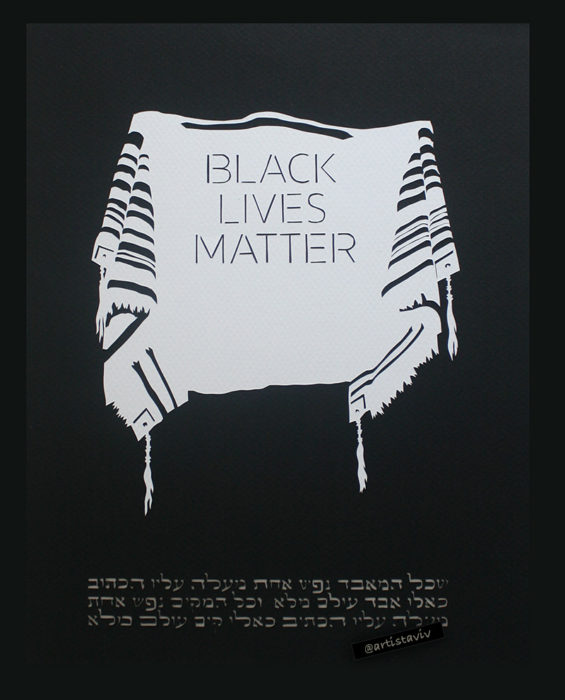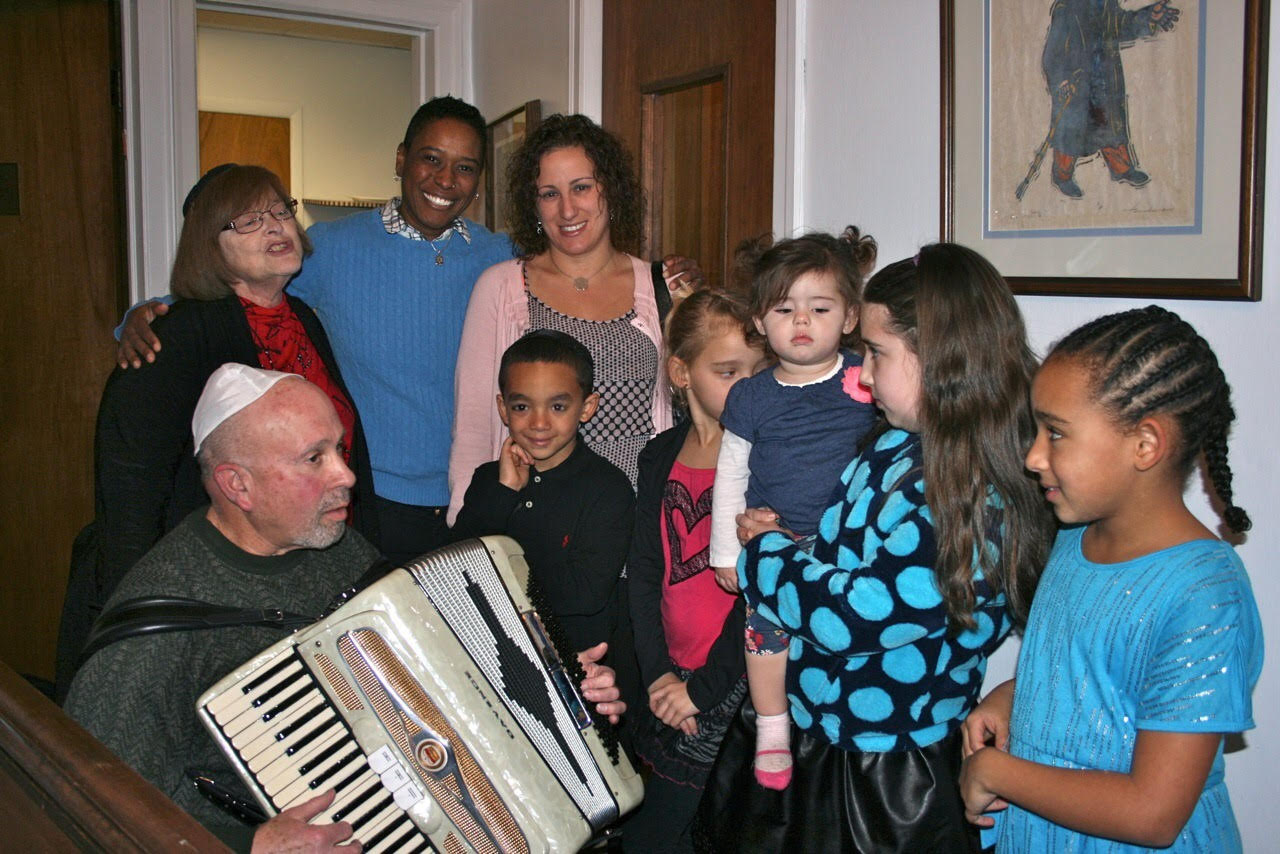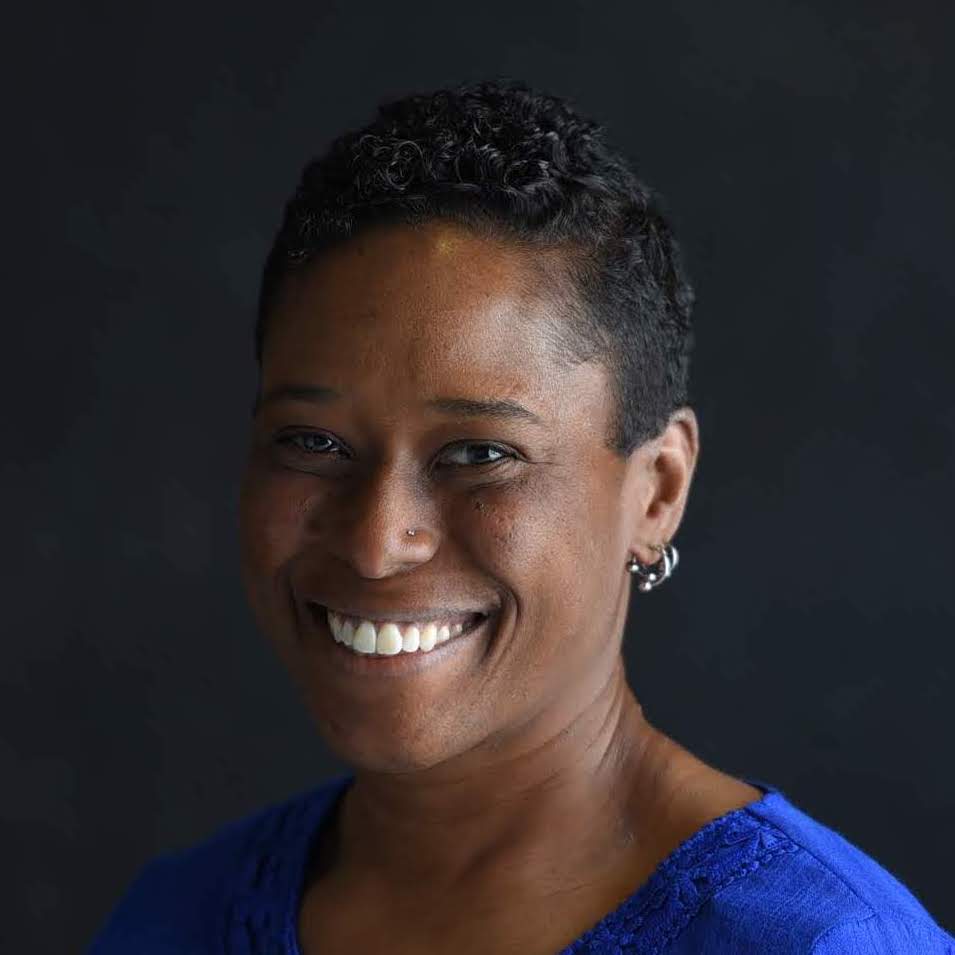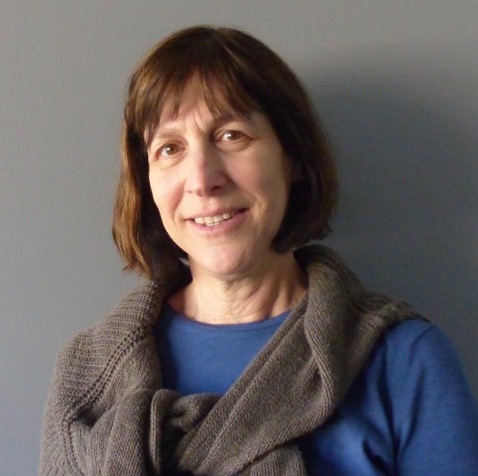Co-written by Rabbi Sandra Lawson and Donna Cephas, this essay examines the assumption that all Jews are white, while touching on a myriad of interrelated issues: conversion, interracial families, adoption, Ashkenazi privilege and political correctness.

The Why
Understanding Judaism as a religious civilization enables some of us to be both Jewish and American and to hold identities that are not in tension with each other. Much has been written and discussed about how being both Jewish and American can increase our comfort with diversity and allow us to value other identities, making it easier for us to engage with other faith traditions as Americans. This dynamic underlies a principle of Reconstructionist thought that is captured in the notion of transformative dialogue. In this dialogue lies the possibility that new truths may be found, and our own self-conception may be deepened and possibly transformed.
Holding a Jewish American, or American Jewish, identity does not always lead to an appreciation of difference. Throughout the Jewish community, there are still those of us who disparage and sometimes fear other traditions as a threat to their existence. This leads to insular behavior towards those within and outside of the Jewish community. The differences we perceive are not limited to religious identity. Here, we will discuss how we often treat Jews of color as other, as objects of curiosity, and sometimes as objects of distrust.
Reconstructionist Judaism focuses on community and therefore on the importance of celebrating the gifts of all who sit at our Jewish tables. It is therefore important to examine whether we truly are as inclusive as we think. Are we celebrating all of those who are in our community, or do we sometimes push them away in our discomfort?
In particular, as Americans, do we understand our obligation to discuss and understand vestiges of the trauma from the unique form of racism in this country and how it plays out within the Jewish community? The discussion of racism in the Jewish community is complicated and thwarted by the still often unspoken assumption within American Jewry that Jews are white.

Who is a Jew?
The assumption of a white Jewish identity renders Jews of color invisible and/or not authentically Jewish. The American Jewish population is changing and becoming more diverse through adoption, conversion, intermarriage and immigration. There is a need within the Jewish community to gain a greater understanding of Jewish diversity and to develop tools for creating a more welcoming and inclusive environment within the larger Jewish community. Reconstructionists must initiate discussions to integrate awareness of this problem and educate our congregations and communities.
Awareness of the tapestry of identities that grace our communities can be facilitated through the sharing of personal narratives. Personal narratives allow us to hear how each of us thinks about and practices being Jewish—how we are part of a Jewish family and Jewish community. What we learn from one another helps us to think more broadly about who is a Jew. By sharing our stories in community, we can debunk myths that devalue the identity and practices of Jews and Jewish families in America. We must go beyond the statistics to grasp the ways in which individuals and families are Jewish. Narratives are crucial in this process, and so we each offer our personal narratives.
Donna
Accepting Reconstructionist teaching on identity comes easily to me. My own family is a blend of people from different racial and religious backgrounds; I know well how we come together to celebrate Jewish holidays and learn with and from one another. However, it is easy for me to be a Jewish American because I am considered a white Jewish American.
Mordecai Kaplan hoped we could be American Jews in our religious and civic lives. In his vision, American values and ideals could inform the Jewish community and the Jewish community could contribute to American society. Although anti-Semitism had not disappeared from the America Kaplan wrote about, my own family flourished in the warm embrace of our Brooklyn Jewish shtetl. My maternal grandfather, my Poppy, lived a large part of Mordecai Kaplan’s dream for Jewish Americans.
Poppy loved the freedom and opportunity this country provided for our family to live openly and proudly as American Jews. The American dream worked for my Ashkenazi family that fled persecution in Russia and thrived in New York City. My grandparents owned a kosher butcher shop in Brooklyn and were able to save enough to buy a small property so that they could retire. My family benefitted from access to education, stable housing, financing for business and the safety net of public services from government-regulated entities. I grew up trusting civil authority and feeling comfortable in any Jewish community I entered. My family exemplified Kaplan’s notion of a dual American Jewish identity. We did not “ … harbor any kind of divided allegiance … rather a dual loyalty that allowed [us] to live simultaneously and fully with both Jewish and American civilizations.” At the close of every Shabbat meal (and any other Jewish holiday meals), we stood and sang “God Bless America” or “My Country ′Tis of Thee.”
This American Jewish paradigm of ease in two civilizations is not the legacy I can pass on to my daughters. The American dream I inherited is not shared by my husband. His ancestors were seized in their own countries of origin and brought here as slaves, where they were deemed unfit, legally and morally, to benefit from the rights of citizens. While historians disagree as to which system of slavery can be characterized as the worst, the American system of chattel slavery is generally acknowledged as being among the most dehumanizing. Vestiges of this dehumanization remain part of an insidious and prevalent racism still evident today. My daughters are part of an extended family, some of whose members lived the American Jewish dream and some of whom suffered from legally sanctioned enslavement and persecution.
To this day, although discrimination is no longer legally sanctioned, my family members often face daily insensitive comments or questions that are racially tinged. What makes me saddest is the instances that occur within the Jewish community. My younger daughter recently commented that the only time she feels the weight of anti-Semitism is in the Jewish community.
As Mordecai Kaplan celebrated American democracy and Jewish justice, I question how well he understood the underbelly of this American dream. I wonder how he made sense of that part of American values and culture which destroyed the fabric of different non-dominant cultures, consigning many groups to live apart from the American society where people could worship as they chose and flourish on the basis of their abilities. The ability to flourish depends in large part on access to quality education and safe neighborhoods. American values provide these resources to the majority of white Americans only. For my family of origin, we were white enough to have access to them. For my husband’s family, this was not the case. When they did achieve access, it was through hard-fought, courageous acts of civil disobedience, most often fighting against the government that was supposed to be providing “liberty and justice for all.”
My family of origin could easily be Jewish and American. Each of us was welcomed into the Jewish communities where we lived and afforded full-fledged status. My own nuclear family cannot rely on our being comfortably accepted in all Jewish settings.
For many Jews, we are a problem. When we walk through some Jewish doors we confound expectations. People see different skin colors and presume intermarriage; we are aware that they don’t know what to do with us. At my younger daughter’s Hillel, she was asked if she knew what was going on, and what she was doing when she put on her tallit and kippah. Students who are Jewish have told her she can’t be Jewish; she must be half-Jewish or not Jewish at all. When she walked up to the table in the cafeteria during Passover that was serving food for those observing Passover, she was summarily dismissed and told it was only for those who observed Passover. When my older daughter was 11, a man wearing a kippah approached her and asked her why she was wearing a Jewish star. My daughter replied, “I am Jewish.” This man told her how funny it was to him that she could be Jewish. Recently, my daughter told my husband that was the day she took off her Star of David, and she has not worn it again. While traveling in Israel with other American Jewish students, she was told how funny it was to them that she is Jewish. This type of impertinent questioning and intrusive commenting continues for both of my daughters.

Sandra
My own experience and commitment to Judaism is shaped by my own identity as a queer black Jewish woman. I converted to Judaism because I fell in love with Judaism, Jewish community and Jewish ritual, and I wanted to be part of the Jewish people. I also believed it when I was told that once I converted to Judaism, I was Jewish. I would not be treated by members of the Jewish community as an outsider.
The reality, however, is that upon meeting me, Jews who are white will often ask me a myriad of questions: How are you Jewish? When did you convert? Don’t you have to be Jewish to go to rabbinical school? That last one shocks and saddens me every time and yes, I have heard it on more than one occasion. These questions never seem to happen in a context of wanting to know me as a person. They are about the questioner’s own curiosity as they attempt to see how I fit into Judaism. When people start to ask me questions about my Jewish identity, I feel as if they are trying to assuage some type of uncomfortable feeling they have regarding my Jewishness. When people ask me these questions, I’m never sure how to respond. Sometimes I will respond “I’m just Jewish.” Sometimes, I expend energy to educate other Jews about the rich diversity that exists in the Jewish community, but this is exhausting. I rarely get to tell my Jewish story in a way that feels safe. I am often made to feel like I am expected to rattle off a simple yes or no answer, as if anyone’s Jewish story is that simple. All Jewish stories are complex and personal.
As human beings, it is natural for us to be curious; but in my experience, among white American Jewry, this curiosity comes across as a level of discomfort on their part and is invasive at the very least. I have often felt both physically and emotionally pigeonholed when I am confronted by this kind of questioning. Let me share an example: Before I entered rabbinical school, I worked for the Anti-Defamation League (ADL) as an Investigative Researcher. One day I was invited to speak to a group of donors and board members in the Florida office. My job on that occasion was to explain some of the ideology of white supremacist and anti-Semitic organizations in the United States, and to encourage listeners to increase contributions that would be used to combat extremism. At the end of my presentation, I told the folks in the room that right-wing extremism affected me both personally and professionally because I was partnered with a woman and I was Jewish. After I outed myself as a Jew, the group had no interest in discussing anything else: How was I a Jew?
After my talk, there was a meal—Chinese food, of course. I never got the chance to sit, eat and chat with most of the guests because I found myself backed into a corner by two tall white Jewish men asking me questions about my Jewish identity. It turned out that one of the men was married to an Asian woman. They were parents of a biracial child, and he was desperate to learn if there were other Jews of color in this country. “Now you know there are other Jews of color in the United States,” I told him.
The other man’s questions were impertinent and invasive. He had a hard time understanding how, why and under what circumstances I converted. He assumed that I should answer whatever personal questions he asked. This is not an uncommon experience for me.
One day I was at a retreat for rabbinical students. There were rabbinical students from every rabbinical school on the East Coast. The retreat also featured rabbis from across the movements. On the second day of the retreat, as I was standing in line for lunch, one of the rabbis started asking me questions about my conversion. When we sat down to eat he continued his line of questioning. We were at a table full of rabbinical students, but he seemed focused only on me. I had never met this rabbi before, but the first thing he wanted to discuss was conversion. I told him that I usually like to get to know people before I disclose personal details. He responded that he loved to hear conversion stories, and converts often like to share their stories. I reminded him that in today’s society, all Jewish stories are amazing, and if you only focus on those who look different, you are missing out on hearing the stories of others. Afterwards, several students came up to me to tell me how uncomfortable they felt with his questions and thought I handled it pretty well. One student who is white told me people never ask about her conversion and rarely assume she’s converted.
One final story: One Shabbat morning, I was visiting a synagogue, and wearing a tallit and kippah and reciting the Amidah with the rest of the congregation. A man tapped me on the shoulder and asked me how I knew the Amidah. I told him I am Jewish. His behavior made me feel as if my presence at this synagogue was disrupting his ability to pray. To be comfortable, he needed to know who I was and why I was there.
American Jewry Is Diverse
Over the last few years, there have been several studies on the racial and ethnic makeup of American Jewry. The Institute for Jewish and Community Research [IJCR] estimates that 20 percent of the American Jewish community is racially and ethnically diverse; including African, African American, Latino (Hispanic), Asian, Native American, Sephardic, Mizrakhi and mixed-race Jews by heritage, adoption and marriage. The American Jewish population is changing, becoming more diverse and reflecting the makeup of the larger American society, yet there still exists an unspoken assumption that all American Jews are white and from Eastern European backgrounds. Rabbis and community leaders would do well to educate their communities about how to interact with Jews who are racially and ethnically diverse, and to create a more inclusive community for all.
Most Ashkenazi Jews do not think of themselves as racist. For many decades, there have been those who have fought against racial discrimination. There is a continued commitment within the Jewish community to the belief that people of color should have equal rights and equal opportunity, although there is substantial disagreement about what “equal” means and what policies of inclusiveness are necessary. Sadly, this commitment to equality is often limited to people of color who are not Jewish and to the rights of Jewish people of color in the larger society. There is insufficient recognition of racism within the Jewish community and what we in the Jewish community need to do to change our culture so that “we Jews” refers to “all” Jews and each of us feels included in and integral to our Jewish community.









One Response
My story is similar to your story. I constantly have to tell people I’m Jewish and everyone wants to hear my story..